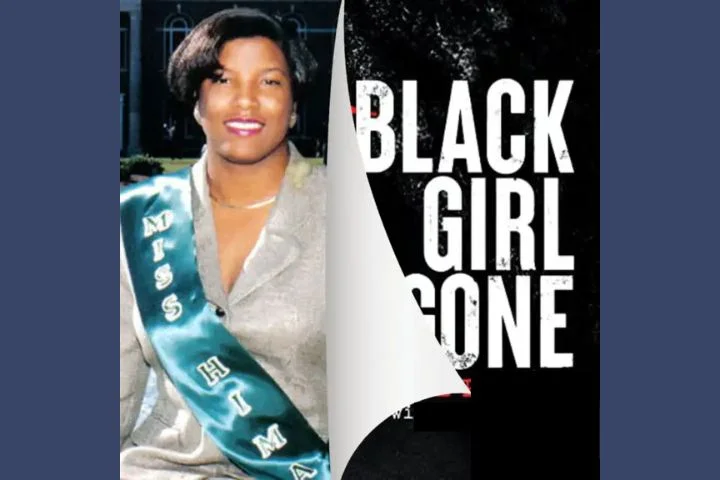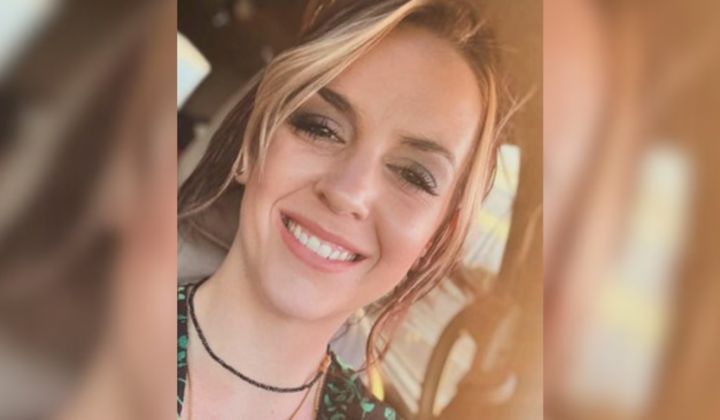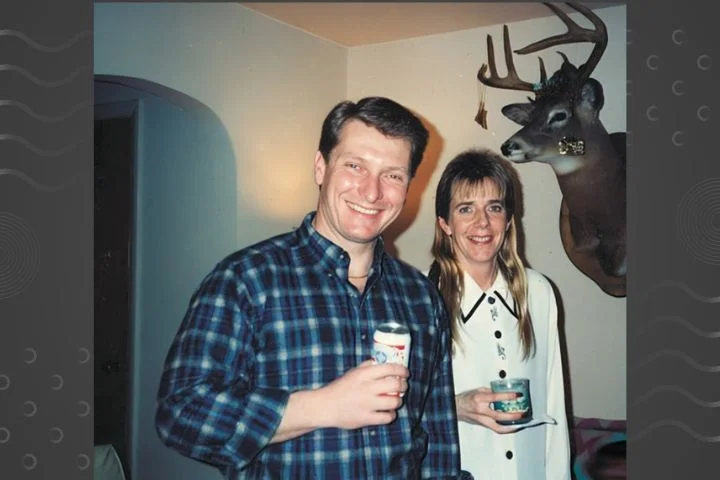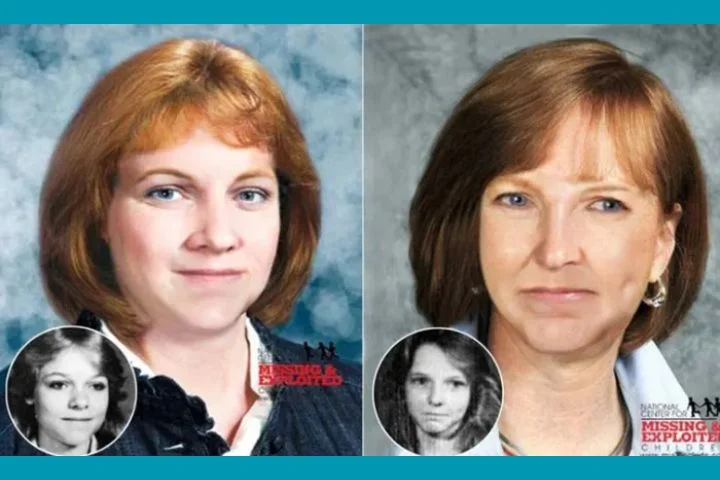Ali Gilmore was expecting her first child and was extremely excited about becoming a mother. Thursday, February 2, 2006, was a normal day for the 30-year-old. She arrived at the Florida Department of Health office in Tallahassee, where she worked as a statistical analyst, promptly at 8:00 am. She left there around 5:00 pm and headed for her second job at a nearby Publix bakery. She finished her shift at 11:00 pm and told some of her coworkers that she planned to head straight home. They watched as she headed out into the parking lot carrying two slices of pizza she had purchased on her break; it would be the last time they ever saw her.
Ali grew up near West Palm Beach, Florida, and attended Jupiter High School. After her graduation in 1993, she moved to Tallahassee to attend Florida A & M University. When she graduated with a degree in health information management, she decided to remain in Tallahassee, drawn by the city’s low crime rate and slower pace of life as compared to West Palm Beach. She was hired by the Florida Department of Health, where she quickly earned a reputation as a competent and compassionate employee.
Throughout high school and college, Ali had worked for the supermarket chain Publix, and she opted to stay there part-time even after taking a job with the Department of Health. It didn’t leave her with a lot of free time, but Ali didn’t seem to mind the long hours.
A year after she graduated from FAMU, Ali went to a picture frame store in Tallahassee’s Governor’s Square Mall to buy a frame for her diploma. She immediately hit it off with the employee who waited on her, a man named James Gilmore. The attraction was mutual, and the two were soon dating. In October 2000, they got married.
James would later credit Ali for encouraging him to go back to school; he enrolled in Flagler College to study business when he was 29 years old. While the couple appeared to have a solid relationship, there was some stress in the marriage. Money was tight, as James had to pay child support for his three children from a previous relationship. To make ends meet, Ali had to continue working two jobs while James went back to school.
A couple of years after they got married, James and Ali purchased their first home together, a newly-constructed rancher in Tallahassee’s Wilson Green subdivision. Between James attending college and Ali working two jobs, they rarely got to spend time together and the strain eventually became too much for their marriage. In the fall of 2005, the couple separated and James moved in with his brother.
A month or so after James had moved out, Ali learned that she was pregnant. She had always wanted children and was thrilled with the news, but she was cautious. She had gotten pregnant the previous year but had suffered a miscarriage, so she was careful not to do anything that might jeopardize her unborn child. She made sure she never attempted to lift anything heavy and even avoided climbing stairs when possible. Although she hadn’t yet learned the sex of the baby, she was convinced she was having a girl and told friends she had been thinking about naming her Jasmine or Angel.
Although James and Ali had separated, they were committed to finding a way to make their relationship work. They started attending marriage counseling, and Ali told her coworkers she was hopeful that the two of them would be able to work through their differences and move forward as husband and wife.
Ali and James were scheduled to attend a counseling session on the morning of Friday, February 3, 2006, but James overslept and missed the appointment. He tried to call Ali at her office that afternoon to apologize but was surprised to learn that she had never shown up for work. Her colleagues agreed that it wasn’t like her to miss a day without calling, but they weren’t overly concerned. They knew she was pregnant and it was possible she might have had a doctor’s visit that she had forgotten to mention.
James tried to call Ali a couple of times on Saturday but was unable to reach her. Thinking she might have been angry with him for missing their counseling session, he decided to give her some time to cool off.
When Ali failed to show up at work on Monday morning, her coworkers began to worry that something had happened to her. They waited until the end of the day, and when they still hadn’t heard from Ali two of her coworkers drove to her house to see if she was there. Her car was in the driveway and her porch light was turned on, but no one answered the door when they knocked. At 8:00 pm Monday, Ali’s supervisor called the Tallahassee police and asked them to do a welfare check on her missing employee.
Officers were dispatched to Ali’s Loraine Court home. The house was locked and there were no signs of forced entry. They contacted James as well as some of Ali’s neighbors, and all of them agreed that it would be completely out of character for her to go anywhere without letting someone know.
Police searched through Ali’s home but found nothing out of place. There was nothing to indicate that any sort of struggle had taken place inside the house or in Ali’s car; only Ali and her house keys were unaccounted for. Still, the fact that Ali was four months pregnant and rarely out of contact with friends and family concerned police, and on Tuesday they had a forensic team comb through the house for clues to her whereabouts. They also impounded her car and processed it for possible forensic evidence. Nothing was found to suggest that foul play had taken place.
The subdivision where Ali lived was still under construction, and there were many partially constructed homes and vacant buildings. More than two dozen police officers carefully combed through the area looking for any sign of the missing woman, but came up empty. Detectives canvassed the neighborhood, questioning residents and learning more about Ali’s daily habits. Everything they heard indicated that Ali had not gone missing voluntarily.
Investigators interviewed Ali’s family, friends, and coworkers and determined that no one had any contact with her after she left Publix at 11:00 pm Thursday. It seemed clear that she had made it home from work; the two slices of pizza she had bought were found inside her refrigerator and her Publix uniform was neatly folded on her bed.
Detectives learned that Ali had taken a phone call at 12:48 am on Friday; although they refused to release the caller’s name during the early stages of the investigation, the call helped narrow down the time of her disappearance. Like James, she had failed to show up for her marriage counseling session early that morning, leading investigators to believe that something had happened to her overnight.
Suspicion immediately fell on Ali’s estranged husband. A neighbor saw a car in Ali’s driveway around 7:30 am Friday, and he told police that he believed it belonged to James. Detectives interrogated James several times, but he staunchly denied having been at Ali’s home that morning and swore he had nothing to do with her disappearance. He voluntarily underwent a voice-stress test; the analyzer determined he was telling the truth. It was enough for police to refrain from publicly naming him as a suspect, but he remained a person of interest.
By the following week, the investigation seemed in danger of stalling. Despite several public appeals, investigators received few tips and had been unable to develop any solid leads. A letter sent to the editor of the Tallahassee Democrat decried the fact that there had been little media coverage of the case, pointing out that another pregnant woman, Laci Peterson, had made national news when she disappeared in 2002. The letter-writer was justifiably upset that Ali’s case wasn’t even getting local attention, let alone national.
Those who were close to Ali were devastated by her disappearance. Nine of her family members traveled to Tallahassee to help in the search; they planned to stay until Ali was located. They spent long hours canvassing the surrounding neighborhoods with missing fliers, making sure that every resident was aware of the fact that Ali was missing.
On February 10th, police held a press conference to update the public on their investigation. There was little to report. Several of Ali’s family members spoke at the news conference, pleading for help in finding the missing woman while clinging tightly to photos of her. Later that night around 150 of Ali’s relatives, friends, and coworkers held a candlelight vigil in front of her home. They shared stories about her, cried, and prayed for her safe return.
Forensic investigators returned to Ali’s home a few days later, searching desperately for anything they might have missed during the initial investigation. Once again, they came up empty. Whatever had happened to Ali, it appeared that it hadn’t happened inside her home.
At the end of February, the Tallahassee Police Department announced that they were offering a $10,000 reward for information leading to either Ali or the person responsible for her disappearance. It was the first time the department had ever offered such a reward in a missing person case, but they told reporters that they had little information to go on and were hoping the reward would help bring in new information to jumpstart the investigation.
Although Ali was still officially classified as a missing person, the fact that she had been gone for almost a month led detectives to conclude that she had most likely been a victim of foul play. In an effort to generate new leads, investigators gave interviews to several national television shows, including Dateline and Nancy Grace. Several new tips came in as a result of the increased publicity, but none of them led to any breaks in the case.
Four weeks after Ali vanished, James made his first public statement about the case. He said he was still having a hard time processing what had happened, and assured reporters that he had nothing to do with her disappearance. He didn’t understand why people believed he would have done anything to harm Ali; he was adamant that they had still been in love and had been actively working towards a reconciliation. Officials admitted that James had been very cooperative with them, but stated that no one had been ruled out as a suspect.
In March, the reward for information was increased to $30,000. Hoping to increase the amount offered, one local business owner came up with an innovative way to collect money for the reward fund. Adam Bardhi, the owner of the Village Pizza & Pasta restaurant in Tallahassee, offered a discount on pizzas in exchange for donations to Tallahassee Crime Stoppers. Ali had been a frequent customer at his restaurant, and Adam wanted to do everything he could to make sure she wasn’t forgotten.
Two months after Ali went missing, members of the Pensacola branch of the Klaas Kids Foundation, Escambia Search & Rescue of Pensacola, and Southeastern Canine Search & Rescue organized a large-scale search for her. Along with more than 150 volunteers, they spent two days combing through local neighborhoods, roadside ditches, and parts of the Apalachicola National Forest for clues that might lead to Ali’s location. Any potential evidence they discovered was turned over to detectives from the Tallahassee Police Department to be analyzed, but nothing that was found helped advance the investigation.
With no new information coming in, the investigation soon stalled. It was excruciating for Ali’s family and friends, especially as it grew closer to July 18th, the due date of the baby that Ali had wanted so badly. She should have been at home decorating the nursery and deciding on a name for her child, not missing without a trace. Instead of welcoming a new baby, Ali’s relatives and friends spent July 18th dedicating a tree in her honor at Florida’s Lake Ella.
Ali’s case soon faded from the newspapers, with only an occasional mention on each anniversary of her disappearance. Investigators were tight-lipped about any progress that might have been made, saying only that they hadn’t ruled out any suspects in the case. Many people still thought that James was behind his estranged wife’s disappearance, but he continued to maintain his innocence. Although police hadn’t officially ruled him out, they stated that he had always been cooperative in their investigation and there was nothing to indicate that he had done anything to Ali.
As time went by, more information about Ali’s life in the days and months leading up to her disappearance became public knowledge and it started to seem unlikely that James had been involved in her disappearance. According to Ali’s older sister, Tracy Smith, James hadn’t been the only man in Ali’s life. In October 2005, around the time James moved out of their home, Ali had attended FAMU’s Homecoming festivities. There, she met 25-year-old Dwight Aldridge and the two started seeing each other. The relationship turned sexual, and due to the timing, Ali wasn’t sure if Dwight or James was the father of her unborn child.
In July 2009, Tracy shared some emails she received from her sister with the Tallahassee Democrat. In a November 2005 email, Ali said that Dwight had attended an ultrasound appointment with her; she seemed to believe that he was likely the father of her baby. Despite this, she seemed to indicate that she wanted to reconcile with her husband.
In another email, dated December 20, 2005, Ali seemed to insinuate that there was some tension between her and Dwight. She wrote that although the two were still in frequent contact and saw each other a few times a week, Dwight, who had initially appeared to be excited about becoming a father, felt that the pregnancy had changed Ali too much.
When reporters asked Dwight about Ali, he denied that they had ever had a romantic relationship, claiming they were friends and nothing more. He refused to discuss her disappearance, saying only that it had been a long time ago and he had no idea when he had last spoken to Ali.
Years went by, and Ali’s case remained unsolved. It wasn’t until October 2021 that detectives announced that they had a prime suspect in the case: Dwight Aldridge. For the first time, they told the public that the 12:48 am call Ali had received on the night she vanished had been from Dwight. When questioned, he had admitted to making the call but claimed that he had been out of town at the time and denied having anything to do with Ali’s disappearance. Investigators said they could prove that Dwight had lied to them; his cell phone records showed that he had been in Ali’s neighborhood when he made the 12:48 am call.Dwight Aldridge in 2003 (Photo credit: mysuncoast.com)
According to investigators, Dwight still resided in the Tallahassee area in 2021 but had long since stopped cooperating with their investigation. Although they believe that Dwight most likely killed Ali, they are still struggling to come up with the evidence needed to make a solid case against him. As of June 2022, Ali’s body still hasn’t been found and she remains listed as a missing person.
Ali Gilmore was 30 years old when she disappeared in 2006. She was four months pregnant with her first child, and she was looking forward to becoming a mother. She was a friendly and compassionate woman who was always smiling, and she is deeply missed by her family and large circle of friends. Due to the circumstances surrounding her disappearance, detectives believe that she met with foul play; she was likely killed on the same day she disappeared. If you have any information that could lead to the recovery of Ali or aid in convicting her killer, please contact the Tallahassee Police Department at 850–891–4200 or Tallahassee Crime Stoppers at 850–574–8477.





